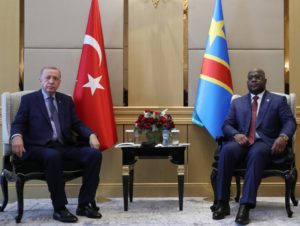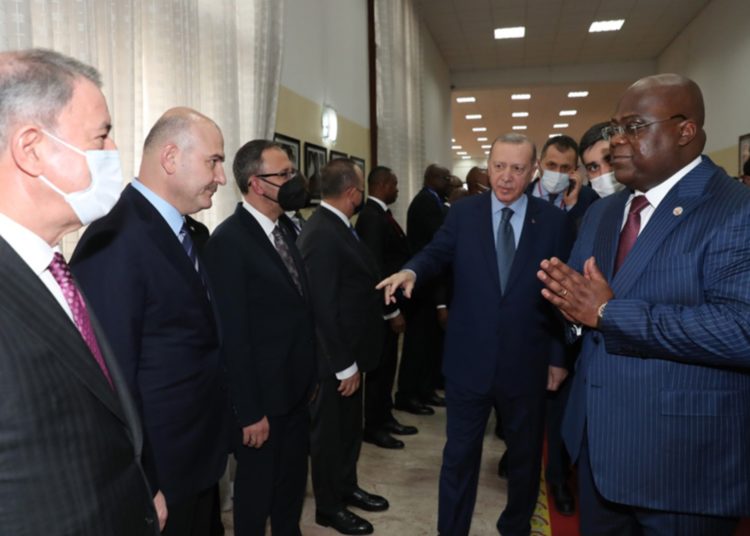Abdullah Bozkurt/Stockholm
Turkish negotiators agreed to put into writing a claim made by their counterparts from the Democratic Republic of the Congo (DRC), who insisted that the African nation’s borders may change and that an agreement signed by the two countries must reflect that possibility.
The agreement, signed on September 7, 2021 in Ankara, covered the promotion and protection of investments in the two countries. During the negotiations, Congolese representatives insisted that the agreement include a provision that the DRC’s territory and borders may change and that the protection should be extended in line with that eventuality.
The Turkish side initially objected and said they would consider the DRC’s internationally recognized borders and territory and that there was no need to add such a provision that reflects the possibilities of changes in the African nation’s territory.
However, the DRC refused to budge, insisting that the definition of territory from its perspective must be included in the agreement. Eager to sign an investment protection treaty with the Congo, Ankara eventually yielded to the pressure and signed an agreement that reflected the disputed borders as protected.
The provision, which is included in Article 1 of the agreement, defined the DRC’s territory as “including territorial sea, airspace and any maritime area beyond the territorial sea that has been or may in the future be designated in accordance with its national legislation and international standards and international law as an area in which it may exercise its sovereignty.”
Text of the agreement between Turkey and the DRC:
The issue was picked up by the opposition in the Turkish Parliament during deliberations in the Foreign Affairs Committee on December 13, 2022. Opposition lawmaker Yunus Emre said such wording in the investment deal creates uncertainty and could put Turkish companies doing business in the DRC at risk.
Defending the agreement, Deputy Foreign Minister Faruk Kaymakçı told the committee that the matter was the subject of disagreement during the negotiations but admitted that they gave in to the pressure for the sake of finalizing the agreement.
“It was really meaningless for us, but we didn’t want to waste too much time. Therefore, we did not see any harm in signing it like this,” he said, adding to that Turkey made clear to the Congolese side that Ankara would implement the agreement according to international law.
“The DRC insisted that its borders could change at any time because of disputes it has with its neighbors, so it said this should be taken into account,” Kaymakçı said.
Turkey agreeing to the Congo’s demands in an uncertain territory definition may risk the wrath of other African nations that have ongoing border disputes with the DRC.

Congo is currently involved in border disputes with a number of its neighbors, including Zambia, Uganda and Rwanda, mainly stemming from the unclear lines of demarcation imposed by former European colonial powers such as Belgium and Britain in the 19th century.
The Turkish diplomat’s explanations during the committee meeting did not satisfy the opposition. Lawmaker Utku Çakırözer grilled Kaymakçı, saying, “You say ‘It’s OK with us,’ but how can you guarantee that will be the case in the future? You don’t know if they [the Congolese authorities] will introduce future legislation. I think you’re too comfortable… I don’t think you can say., ‘Oh, It’s OK with us’.”
Grappling with challenges in the domestic economy, the government of President Recep Tayyip Erdoğan has been eager to sign bilateral agreements on a range of issues from trade and investment to defense industry cooperation with a number of countries in recent years. Investment agreements have been concluded with 110 countries so far.
Africa has been a special focus for the Erdoğan government, which increased the number of Turkish embassies on the continent to 44 with the most recent diplomatic mission opening in Guinea-Bissau. Turkey’s trade volume with African nations has reached $35 billion this year, with Turkish companies signing contracts worth $82 billion. Turkish direct investment in Africa totaled $6 billion according to government officials.
Turkey’s trade volume with the DRC was $70 million in 2021 and was recorded at $90 million in the first 10 months of the year.












